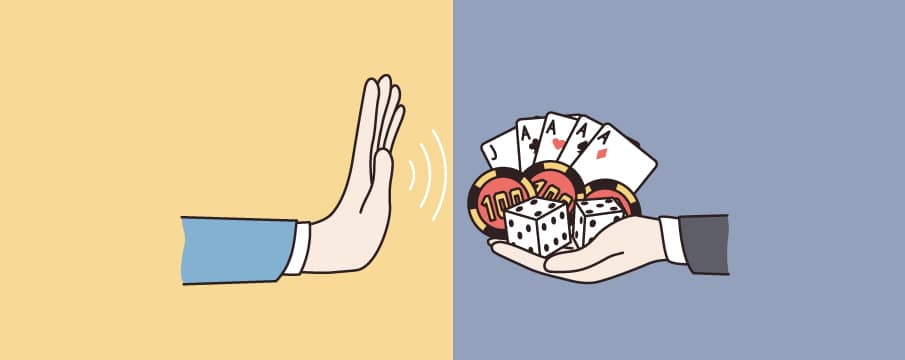The Struggle with Gambling Addiction
Gambling can be an exhilarating experience, offering the allure of quick wins and adrenaline rush. However, for some individuals, what begins as entertainment can gradually become an all-consuming addiction. When faced with the harsh reality of gambling addiction, many people wonder if it is too late to quit and regain control over their lives.
Understanding the Impact of Gambling Addiction
Gambling addiction is a grave issue that impacts people from various backgrounds. It is marked by an irresistible compulsion to gamble, resulting in significant negative consequences for personal relationships, financial stability, and mental health. The excitement associated with gambling can lead to a destructive cycle wherein individuals relentlessly pursue their losses and partake in progressively hazardous actions.
Taking the First Step: Recognizing the Problem
Recognizing the presence of a problem is the initial stride in conquering a gambling addiction. It takes courage to face the reality of addiction and to seek help. By recognizing the negative impact gambling has had on your life, you have already taken a significant step toward recovery.
Seeking Professional Support
Quitting gambling is not an easy journey, but it is never too late to start. Professional support is crucial in helping individuals overcome addiction. Various resources are available, such as therapists specializing in addiction counseling, support groups, and helplines. These avenues provide a safe space to share experiences, learn coping mechanisms, and receive expert guidance.
Creating a Supportive Environment
In addition to seeking professional help, it is important to establish a supportive environment. Surround yourself with people who understand your struggle and can offer encouragement and support. Sharing your journey with loved ones can help create accountability and foster a sense of community.

Developing Healthy Coping Mechanisms
Quitting gambling requires finding alternative ways to cope with stress, boredom, and other triggers. Participating in activities that bring happiness and a sense of fulfillment can effectively redirect focus away from the temptation to gamble. Pursuing hobbies, practicing mindfulness or meditation, and maintaining a healthy lifestyle can contribute to overall well-being and aid recovery.
Taking Control of Finances
One of the significant consequences of gambling addiction is financial strain. As you embark on your journey to quit gambling, taking control of your finances is crucial. Developing a budget, seeking professional financial advice, and implementing debt repayment strategies are essential to regaining financial stability.
Celebrating Small Victories
Recovering from gambling addiction is a process that requires time and patience. It is important to acknowledge and celebrate small victories along the way. Each day without gambling is a step forward, and recognizing these achievements can boost your confidence and motivation to continue on the path of recovery.
Moving Forward with Hope
No matter how deep-rooted a gambling addiction may seem, quitting is never too late. Individuals can regain control over their lives with the right support, determination, and commitment to change. Remember, seeking help is a sign of strength, and every step toward recovery brings you closer to a brighter future.
Conclusion
Gambling addiction can be a daunting and overwhelming challenge, but breaking free from its grip is possible. Individuals can reclaim their lives by recognizing the problem, seeking professional support, building a supportive network, developing healthy coping mechanisms, and taking control of finances. It is never too late to quit gambling and journey towards a happier, healthier future.

